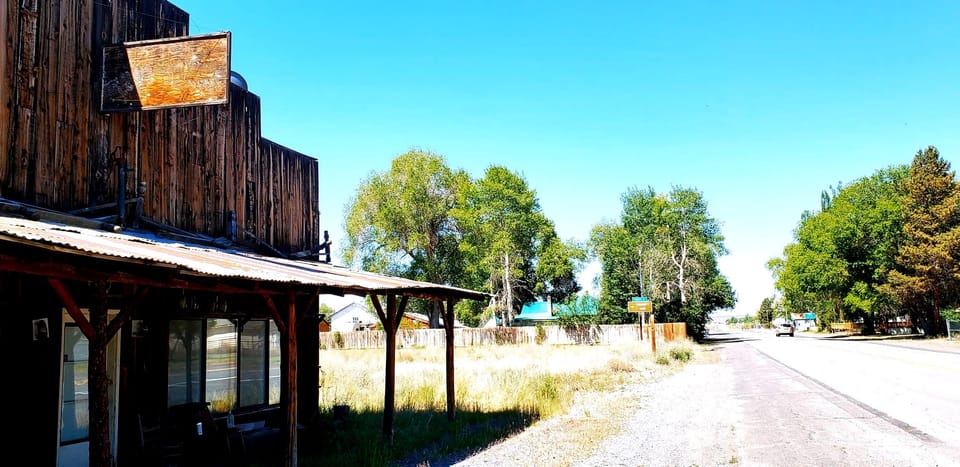Regarding the Summer: Southern Oregon in Crisis

West winds blew the smoke of distant wildfires, marring our horizon with a distinct kind of haze, a sign of deepening sorrow. And still we endure, as day to day life must continue even in the face of trouble. However, aside from the tragedy of "mega wildfires" in Southern Oregon, there are pressing social issues to consider, some of which pertain to families and young children. My summer days in Oregon have revealed much about this magnificent state and its people.
A Time of Rediscovery
Upon returning to Silver Lake from my stay in Grants Pass, I reconnected with an elderly couple, Elizabeth and Stan--so named for the purposes of our narrative. Although our previous acquaintance had been brief, no longer than two weeks as I recall, my conversations with Elizabeth resumed easily in the evening winds of August, filled as they were with smoke and mosquitos. As we chatted, her grandson played in the sprinklers with an older cousin and laughed with delight, joyful in ways unknown to most adults. And, as a loving grandmother, Elizabeth doted on the boy, smiling as beads of water soaked him from head to toe. As the night slowly approached, I felt a sense of comfort in my return.
During the weeks I spent in Grants Pass and Gold Beach, the strange grocery store of Silver Lake--the establishment that sold expired hotdogs but lacked bottled water--finally closed down, doors locked in the shadow of the creepy motel next door. The family who moved from Portland to run the store--apparently, without the slightest knowledge of business--relocated to the desert to live off-grid and left the establishment to molder. Now, the center of town has yet another abandoned building in plain sight, forming a gauntlet of intrigue for visitors. One can stand in front of the post office, gazing east, and count the derelict structures that lead to Christmas Valley and the Dollar General, each one with its own story of desertion. On the following morning, refreshed by a comfortable sleep, I chatted with Stan about recent events in the town.
Veils of Smoke Presiding
Yesterday, shortly after I arrived from Silver Lake Road, a structure fire erupted and occasioned quite a response from local firefighters, their heavy equipment screaming into the afternoon with sirens and the roar of engines. Stan was privy to the details of the situation, his neighbor of many years being the property owner.
"His hay barn burned. He's rich. He can afford to rebuild, but he don't want to spend the money." We both smiled for a moment and marveled at the number of fires scorching the West, few property owners being as fortunate as his neighbor. Then, suddenly, Stan's voice broke as he fought tears and clutched at the front of his shirt in apparent anguish.
"We lost our little boy last night."
Only hours after the happy scene of watching their grandson play in the sprinklers, my neighbors were at a loss; the child they had raised intermittently for six years was gone, having been taken by court order and returned to his mother.
The boy's mother had called Elizabeth in July and asked her to care for him, as the woman's prolonged drinking had made motherhood inconvenient. Apparently, after having lost custody of her other three children, she decided to claim the fourth and remove him from the care of Elizabeth and Stan. As for the father, who is their son, he is presently fighting for custody with the encouragement of family and friends. And with this, we see the crisis of a rural community, one that extends beyond wildfires and climate issues.
Town and Country: Two Versions of Sorrow
Where hunger and hardship are concerned, we sometimes believe that urban environments suffer more profoundly. Indeed, we are never shocked to hear of violence in the larger cities, or to learn that the poor find themselves without food and heat during winter months. However, we believe rural communities to be different, standing in sharp contrast to Los Angeles with its legions of homeless and Midtown Manhattan with its crumbling tenements. As Americans, we have long admired the caring ways of country folk, rural kindness being the stuff of legend in some cases.
When Stan was younger, he and a friend would hunt to provide venison for elderly neighbors, making their rounds each October with the life-sustaining meat. It was just the sort of thing that people did in previous years, knowing that their kindness could help to feed cherished neighbors and friends. Sadly, after Stan and his friend grew too old for the endeavor, no one emerged to take their place. Consequently, neighbors in need no longer have care packages to see them through the winter. Although large cities suffer more, according to their population density, smaller communities have lost many of their traditions of hospitality and neighborly care. And the natural environment has deteriorated as well.
As Stan and I chatted, watching smoke drift through an unnerving amount of brush, he informed me about the old days of ranching. Having worked from Bakersfield, California through Oregon and Idaho as a rancher, he recalled the former condition of the land, with special attentiveness to the region of Silver Lake. "It used to be grassland as far as you could see. Now, the old ranchers are gone, and it's all brush." And brush burns.
Summer Rain Arrives
After many prayers, a cold rain arrived the other night, a reprieve that lifted our spirits and restored Oregon's "normal" weather patterns--at least for a short while. Peering from my window, I see bluer skies and the outline of distant mountains that cheer my soul, even as I behold the vacant lawn where my neighbors once delighted in their little boy.